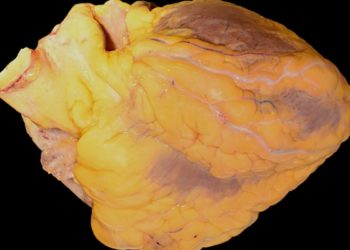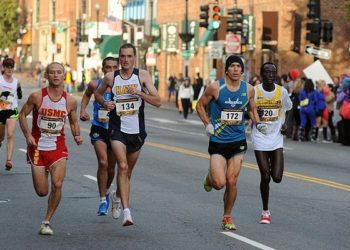Molecular autopsy increases diagnostic yield for sudden cardiac death
1. In a large number of cases, the underlying etiology of sudden cardiac death (SCD) affecting children and young adults remains elusive despite comprehensive autopsy efforts.
2. In this prospectively collected, population-based case series of 490 cases of SCD in Australia and New Zealand, 40% of cases were unexplained by conventional methods; a clinically relevant gene mutation was identified in 31 of 113 originally unexplained cases (27%).
Evidence Rating Level: 4 (Below Average)
Study Rundown: Sudden cardiac death among children and young adults is a devastating event, with myriad causes including structural heart diseases such as hypertrophic and dilated cardiomyopathy as well as primary arrhythmogenic disorders such as long-QT syndrome. Previous epidemiologic studies in this area have been hampered by relatively small size and retrospective design. Furthermore, up to one third of cases of SCD affecting children and young adults remain unexplained in traditional autopsy series.
This was a 3-year prospectively collected, population-based case series of 490 cases of SCD affecting individuals aged 1 to 35 years of age in Australia and New Zealand. There was an annual incidence of SCD of 1.3 cases per 100 000 persons 1 to 35 years of age, with the highest incidence in the 31 to 35 age bracket. Overall, unexplained cardiac death was the most common finding among all patients. It was more likely to have occurred in women or girls than in men or boy; in younger persons; and during sleep or during the night-time hours between 6pm and 6am, cutting against prior thought that these events might be exercise-induced. When adjusted in a multivariate analysis, younger age group and death at night were significantly associated with SCD. The most common explained causes included coronary artery disease and inherited cardiomyopathies. The majority of deaths occurred during sleeping hours. In cases in which the comprehensive autopsy did not yield a cause of death a clinically relevant gene mutation was identified in 27% of the cases.
The authors found that unexplained cardiac death This case series lends support to the notion that a “molecular autopsy” approach to sudden cardiac death could increase the diagnostic yield beyond that which is afforded by traditional histologic and toxicologic approaches. Further research is necessary to delineate further these underlying genetic causes.
Click to read the study, published today in NEJM
Relevant Reading: Sudden death in young adults
In-Depth [case series]: This incidence study involved a prospectively collected, population based case series of all sudden cardiac deaths affecting individuals aged 1 to 35 years in Australia and New Zealand. Cases were drawn from every available national registry; however, the reported figures do not include cases in which there were insufficient data to determine if the death was sudden, or successfully resuscitated out-of-hospital events. In each case, a comprehensive autopsy process including histological and pathological techniques was followed. If the sudden cardiac death cause remained unexplained, a “molecular autopsy” was attempted, involving the analysis of at least 59 candidate cardiac genes with a variety of genetic techniques (which changed rapidly during the course of the study period).
There was an annual incidence of SCD of 1.3 cases per 100 000 persons 1 to 35 years of age, with the highest incidence in the 31 to 35 age bracket (3.2 cases per 100 000); this is a slightly lower overall incidence compared to retrospective studies of SCD from England and Wales as well as Denmark. Overall, unexplained cardiac death occurred in 40% of patients. The most common explained causes included coronary artery disease (24%, primarily in the oldest age group) and inherited cardiomyopathies (16%). The majority of deaths occurred during sleeping hours. In cases in which the comprehensive autopsy did not yield a cause of death, at least 59 cardiac genes were analyzed for pathogenic mutations; of these studies, a clinically relevant gene mutation was identified in 31 of 113 cases (27%).
Image: PD
©2016 2 Minute Medicine, Inc. All rights reserved. No works may be reproduced without expressed written consent from 2 Minute Medicine, Inc. Inquire about licensing here. No article should be construed as medical advice and is not intended as such by the authors or by 2 Minute Medicine, Inc.







